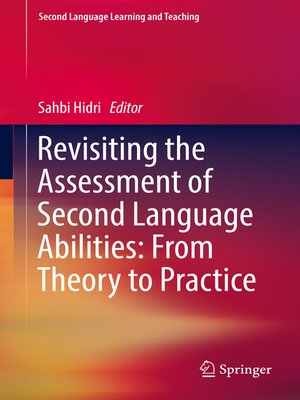Revisiting the Assessment of Second Language Abilities
ebook ∣ From Theory to Practice · Second Language Learning and Teaching
By Sahbi Hidri

Sign up to save your library
With an OverDrive account, you can save your favorite libraries for at-a-glance information about availability. Find out more about OverDrive accounts.
Find this title in Libby, the library reading app by OverDrive.



Search for a digital library with this title
Title found at these libraries:
| Library Name | Distance |
|---|---|
| Loading... |
This book presents an overview of revisiting the assessment of language abilities. It also showcases how the measurement of such constructs can result in negative or positive washback and how outcomes might be conducive to repercussions that decide on the future of many stakeholders. The 23 chapters were selected among tens of chapters received from different contexts that addressed the issue of revisiting the assessment of language abilities, such as Tunisia, Ukraine, Algeria, Russia, KSA, Sudan, Egypt, Canada, Kurdistan, UK, USA, Iran, Turkey, etc. These contexts have highlighted the necessity to revisit the different constructs which should be assessed with a clear and straightforward foundation on students' learning objectives and their actual language ability. To do so, most of the chapters present hands-on use of relevant statistical tests that might serve in revisiting the construct definition both theoretically and operationally. Perhaps the sole and intricate question that the authors of these contributions ask is what it means to revisit the assessment of the construct of individualized language ability and how. In addition, the book accentuates the momentousness and significance of reflecting on test fairness and validation as the mainspring and backbone for democratization of assessment. This book appeals to a broad readership, such as English Language Teaching (ELT) practitioners, language teachers, students, testing organizations, policy-makers, test designers, writers of test specifications, testing experts, researchers, program evaluators, especially in the Middle East and North Africa (MENA) as well as other international contexts.







